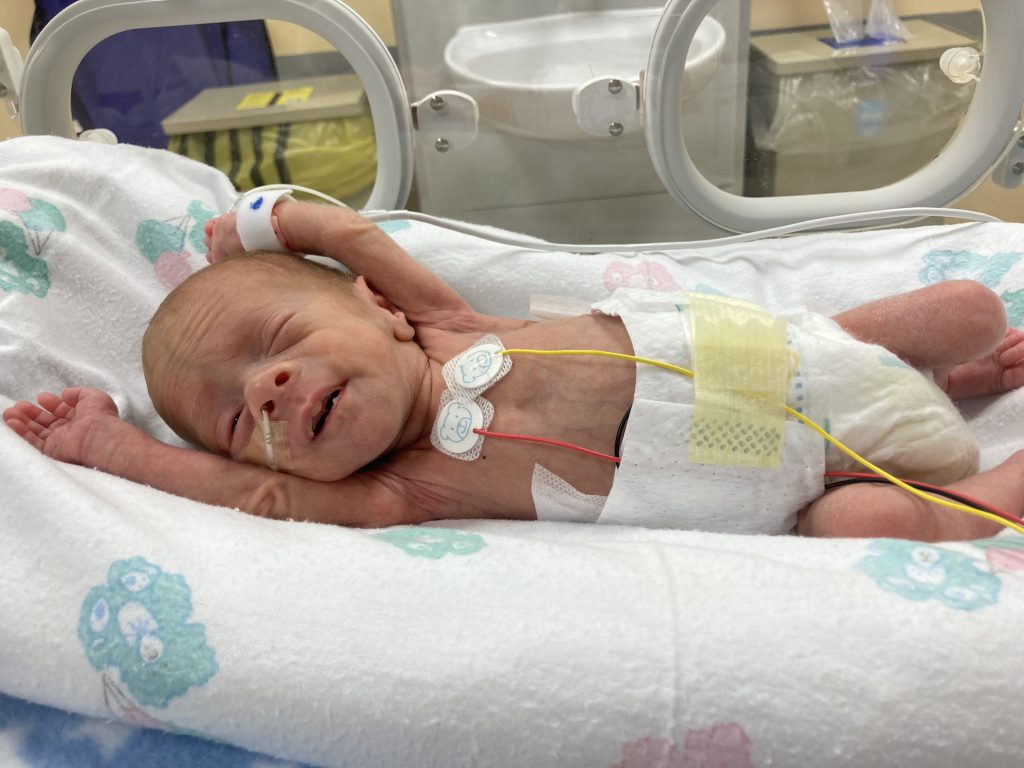October 29, 2021, by School of Medicine
50 at 50: Optimising newborn care to achieve to better health for a better future
The key to good health is a good start in life. In 2010, when I was a relatively new immigrant to the UK, I read Michael Marmot’s report “Fair Society Healthy Lives”. I was delighted to see that the first objective he recommended was “give every child the best start in life”. Over a decade since, as we celebrate 50 years of Medicine in the University of Nottingham, time that I have spent training and working in children’s health service and research, I cannot but agree with the disappointment that Marmot expresses in his 10 Years On report. He says, “we have a lost a decade” and “it shows”. At this point you may wonder why I choose to bring this, rather dismal point of view, to a blog that is meant to celebrate our success. I do so because I believe here lies our opportunity to be part of the solution to one of the defining problems of our times.
 The World Health Organisations tells us that to ensure every child survives and thrives to reach their full potential, we must focus on improving care around the time of birth and the first week of life. In the picture, kindly shared by his parents, is Reggie, who was born nearly 10 weeks early, weighing about two pounds and is being cared for in our neonatal in Derby. These numbers make Reggie both “born too soon” and smaller than expected, challenges the come with vulnerability to several medical problems. With intensive care, good nutrition, and a lot of love from his parents, Reggie is thriving.
The World Health Organisations tells us that to ensure every child survives and thrives to reach their full potential, we must focus on improving care around the time of birth and the first week of life. In the picture, kindly shared by his parents, is Reggie, who was born nearly 10 weeks early, weighing about two pounds and is being cared for in our neonatal in Derby. These numbers make Reggie both “born too soon” and smaller than expected, challenges the come with vulnerability to several medical problems. With intensive care, good nutrition, and a lot of love from his parents, Reggie is thriving.
Globally, in 2019, 2.4 million babies died within 28 days of birth. Although the world has made progress in preventing childhood deaths, death in the first month i.e., neonatal mortality, remains unacceptably high. Even in Europe and North America, regions with the lowest childhood deaths, more than half of all under-five deaths occur during the neonatal period. The Royal College of Paediatrics and Child Health launched our landmark report on State of Child Health 2020 stating that although infant mortality in the UK has declined remarkably in the past 50 years, progress has slowed, falling behind most comparable European countries, and worryingly we have seen small rises in some recent years. Both globally and in the UK, infant mortality trends reflect social and economic inequalities – the rises seen in these indices represent rise in mortality rates among the poorest children while rates among those from advantaged socio-economic backgrounds continue to fall.
In the School of Medicine, we are addressing some of the most difficult challenges in newborn health so that babies similar to Reggie can survive and flourish. Being “born too soon” is the largest cause of neonatal mortality. Our research focuses on improving nutrition while reducing risks of infections and serious gut conditions such as necrotising enterocolitis in preterm babies. Infections, particularly those with the group B streptococcus bacteria are another major contributor to neonatal mortality. We are investigating ways of screening mothers to prevent this infection in their babies. Working together as a team of neonatologists, obstetricians, midwifes, clinical trials experts, policy makers, and most importantly women, children, and their families we are striving to reverse the downward trend in neonatal wellbeing and not just regain “the lost decade” but take maternal and neonatal health further ahead towards a better future for our children.
By Shalini Ojha, Clinical Associate Professor in Neonatal Medicine
No comments yet, fill out a comment to be the first

Leave a Reply